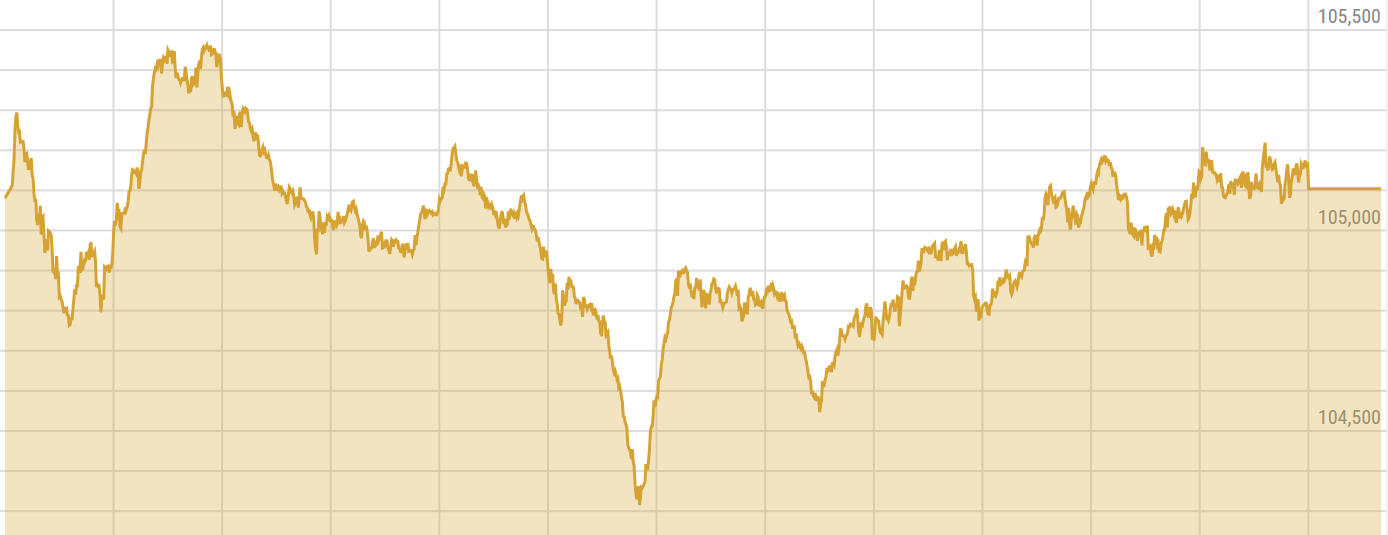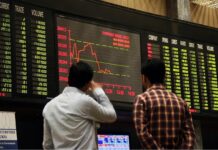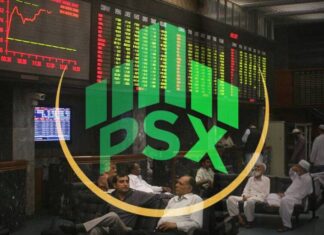ISLAMABAD: Equities gained momentum as the Pakistan Stock Exchange (PSX) closed on a positive note on Wednesday, with the benchmark KSE-100 Index advancing by 545.26 points, or 0.52%, to settle at 105,104.33.
The market opened at 104,559.07 and traded within a range of 104,315.41 (low) and 105,473.56 (high). A total of 697,648,587 shares were traded, with the total value of shares traded reaching PKR 32.39 billion.

Buying was observed in key sectors including oil and gas companies, power and refineries. Index-heavy stocks including HUBCO, PSO, SSGC, MARI, OGDC, PPL, and UBL traded in the green.
The bull-run in today’s market was majorly attributed to the expected rate cut in the next Monetary Policy Committee (MPC) of the State Bank. The State Bank of Pakistan’s (SBP) MPC will meet on December 16 to determine the key policy rate.
After the unexpected 250 basis points (bps) cut in November, which reduced the rate from 17.5% to 15%, analysts are now anticipating another 200 bps reduction.
A report by Profit notes that the November cut lowered real interest rates from 1030 bps to 780 bps. However, with inflation easing to 4.9% year-on-year (YoY) in November, real interest rates have risen to approximately 1010 bps, creating room for further easing.
A poll by Topline Securities reveals that 71% of respondents anticipate at least a 200 bps rate cut. If this occurs, it will mark the fifth consecutive reduction, totaling a 900 bps decrease. Additionally, nearly 21% of participants expect a 250 bps cut.
The market sentiment has also been bolstered due easing inflation and improving macroeconomic indicators. The Ministry of Finance’s Monthly Economic Update and Outlook for November suggested that Pakistan’s economy is witnessing a sustained recovery, driven by declining inflation, surging remittances, and a rebound in exports.
Headline inflation in Pakistan slowed to 4.9% year-on-year in November, a significant drop from 7.2% in October. This marks the lowest inflation rate in 78 months.
Pakistan’s trade deficit narrowed by 7.39% to $8.651 billion during the first five months of the fiscal year 2024-25, compared to $9.341 billion in the corresponding period last year. Exports increased by 12.57% to $13.691 billion from July to November FY 2024-25, compared to $12.162 billion in the same period of FY24.
On Wednesday, Asian equities stumbled as investors contended with the political storm in South Korea, where martial law was imposed and subsequently lifted hours later, while a no-confidence vote in France put the euro in the spotlight.
























